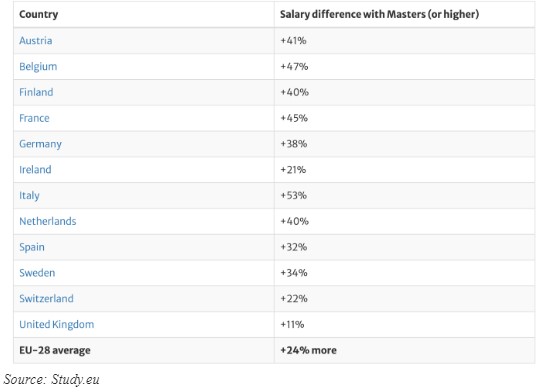BY FRANCISCA CHIEDU
I have seen many posts of people in the diaspora discouraging others from coming to the UK or other popular destinations for economic migrants. I think it is a huge disservice when you tell people not to go because you have failed to maximise your opportunities as an economic migrant. No disrespect but some of our people who migrated in the 80s and 90s are not in touch with the realities of present-day opportunities for high-skill jobs. If you came in through an illegal or irregular migration route, you’re bound to experience hardship. If you are not highly skilled or have experience in high-demand roles, you will most likely be among the uncles and aunties telling people not to come.
Economic migration did not start today. Even in the bible, it was a thing. We are experiencing the #JapaWave because the UK reintroduced the two-year graduate visa during economic hardship in Nigeria and most parts of the world. To be honest, most countries of the world are experiencing austerity, but some counties have better standards of living. Most people in Nigeria are simply looking for better opportunities and an improved standard of living. As an economic migrant, you need to understand the options in the country you are going to. If you don’t do your research and jump on the #Japa bandwagon, you’ll end up as one of those uncles and aunties who tell people not to come but refuse to leave.
Who is an economic migrant? The Cambridge dictionary describes an economic migrant as someone who leaves their home country to live in another country with better working or living conditions.
Advertisement
Before joining the wave of economic migrants using the student visa routes, you must do your research. I would suggest you ask the right questions and enrich your network. I think that the people you surround yourselves with when you arrive in the UK will determine the kind of opportunities you will go for.
I have also seen that many Nigerians do not like sharing their experiences, so we end up with a cycle of people repeating the same mistakes. Many people come in and find out that the courses they are doing do not add to their employability. We also have too many people focused on content just for clicks but we forget the real issues around “expectations vs reality”. Currently, there are international students asking universities for a refund for reneging on the promises they made to them about offering work experience in the form of an internship. If you don’t have experience in a field, why are you doing a Master’s in it? Do you get a job because of your Master’s? Not really. There is more to securing opportunities.

Advertisement
A master’s degree means you have a high level of expertise in a specific field or area of professional practice. If you ask me, people with work experience are more likely to engage in a postgraduate programme and secure a job quickly. No disrespect to people doing a Master’s in Project Management, but if you ask me, what is the point of doing a Master’s in it if you have zero experience? Companies in the UK won’t employ you because you have MSc in project management. You will do Prince 2, PMP, and other related professional courses and demonstrate during interviews that you have managed projects. Analysing 3000–5000 words essays does not give you work experience.
For those pursuing a Masters’s in tech-related courses, especially those involving coding, do yourself a favour and learn how to code. A Master’s degree is not where you learn how to code. At the undergraduate level, you should be coding. You find students who end up paying others to do their coursework. Most schools give fancy course titles to attract students. When I did my Master’s, it was called MSc computing information engineering with network management, what a mouthful! The truth is that that course was a four-year undergraduate programme packed into one year. We did programming, data mining, and network management, all in one MSc course, that is, being a jack of all trades, master of none. You should be specialising at the Master’s level, not doing what Yoruba call “gbogbonise”.
I recognise that some of my comments may not sit well will people who have Master’s in some of the courses I have mentioned, so I have given my honest feedback about the MSc programme I did. UK universities should stop cramping too many things into a programme to attract students. You see those courses they call MSc international business, international HR, international tourism and the like designed for all comers. Which sector in the UK employs you because you have MSc in “international this and that”? You find PowerPoint presentations and loads of coursework, where they ask you to write 3000–5000 words around the topic. Where do you apply these learnings? People who have done “MSc international this and that” should deconstruct the courses and share their experiences.
I think “Msc international this and that” is more appealing in the Nigerian market, where we like packaging over substance. I tell you, UK employers know better. They see through these things. Most employers here are more interested in your work experience. Employers here rarely ask to see your certificate. By now, you should be familiar with the “Tell me a time when you did…” What did you do? What did you achieve? Employers here are more interested in your impact on your previous experience. Work experience does not have to be in a large work environment. It can even be your self-employed and volunteer experience. When I have some time, we will dissect this “MSc international something”, and hopefully, most UK universities will take it as an opportunity to reflect on and improve international students’ experience.
Advertisement
If you have people who have taken courses you are interested in, ask questions about their experience. If you are going to study in a school, ask questions about employment opportunities, housing, and living experience in the region, so you don’t have issues paying up your fees and covering your living expenses. In subsequent posts, we can discuss living costs. Some schools may offer cheap tuition fees, but what is the point if it is hard to find a part-time or student job?
If you know people who can help you with information about a school, city, or region, approach them. If you think you want to surprise everyone with your #JapaStory, you might end up surprising yourself. I am not asking you to tell everyone your plans. When I considered migrating using the global talent visa, I spoke with more than 10 people and two consultants. I gathered all the information for my DIY application. If you think leaving everything for an admission agent, their business is getting a commission, not planning your life for you. So don’t outsource your Japa plans, be deliberate. The UK has opportunities for those who understand the UK market, so make the best of it!
Views expressed by contributors are strictly personal and not of TheCable.
Add a comment






